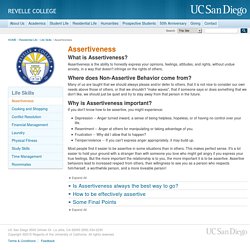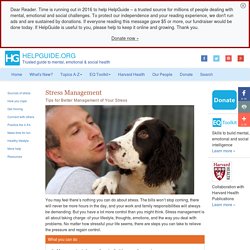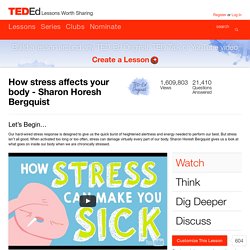

Mojca
Type of study: Interdisciplinarni doktorski študij Humanistika in družboslovje Course of study: področje Organizacijsko kadrovske študije Faculty of Social Studies The theme of the doctoral dissertation: Organizational and social aspects of the impact of stress on work performance of employees in the banking sector
Knowledge Management Systems. Untitled. Untitled. Untitled. Part 1 Dealing With Stress BBC Explorations. Part 2 - Dealing with Stress - BBC Explorations. Part 3 Dealing with Stress - BBC Explorations. Part 4 Dealing with Stress - BBC Explorations. Part 5 Dealing with Stress - BBC Explorations. Part 6 Dealing with Stress - BBC Explorations. Knowledge in Peoples Heads. Documents. DataBase. Resource Planning Program. Strategy, Structure, Operations. National Geographic: The Science of Stress. Setting SMART Goals for Students and Employees. Teaching students to set goals for themselves is not a skill that is typically taught in most educational situations, yet it is a valuable life long discipline.

Most managers will agree that in order to be successful one must begin with the end in mind. Both students and employees can therefore benefit from learning how to set goals. The old adage of “if you fail to plan, you plan to fail!” Rings true, and we recommend making sure anyone taking a course have a goal or desired outcome that they can work towards accomplishing. Set SMART Goals A helpful guide to setting goals is found within the acronym SMART. Specific Goals need to be well defined and easy to understand.
Example: I want to get in shape, so I will run a marathon with Bob, in Boston, on July 21st. This example answers our five “W” questions and can be understand by anyone. Measurable Clear goals should have ways to track progress, both for motivation and for accountability. How Much? Attainable Relevant. Life Skill - Assertiveness. What is Assertiveness?

Assertiveness is the ability to honestly express your opinions, feelings, attitudes, and rights, without undue anxiety, in a way that doesn't infringe on the rights of others. Where does Non-Assertive Behavior come from? Many of us are taught that we should always please and/or defer to others, that it is not nice to consider our own needs above those of others, or that we shouldn't "make waves", that if someone says or does something that we don't like, we should just be quiet and try to stay away from that person in the future.
Why is Assertiveness important? If you don't know how to be assertive, you might experience: Depression -- Anger turned inward, a sense of being helpless, hopeless, or of having no control over your life.Resentment -- Anger at others for manipulating or taking advantage of you.Frustration -- Why did I allow that to happen? Most people find it easier to be assertive in some situations than in others. Is Assertiveness always the best way to go? Stress Management: How to Reduce, Prevent, and Cope with Stress. What you can do Move your body frequently—don't sit for more than an hour Make positive face-to-face connection with other people a priority When you can't change the stressor, learn to avoid, alter, adapt, or accept Reduce your intake of alcohol, nicotine, and caffeine Do something you enjoy every day Get all the restful sleep that you need to feel your best Learn more by reading the related articles What are the best tips for managing stress?

What creates disabling stress in one person, may not have the same affect on another. What best relieves stress is also personal. You may have tried some simple sounding formulas for managing your stress and found that they really aren’t that helpful. Tip 1: Identify habits and behaviors that add to stress It’s easy to identify sources of stress following a major life event such as changing jobs, moving home, or losing a loved one, but pinpointing the sources of everyday stress can be more complicated. Start a stress journal Tip 3: Get moving.
How stress affects your body - Sharon Horesh Bergquist. Let’s take a closer look at how the stress response works.

When your brain senses danger, your amygdala, the part of your brain that helps with emotional processing, sends an alarm signal to your hypothalamus. Acting as command central, your hypothalamus activates your sympathetic nervous system. This part of your autonomic nervous system leads to the release of adrenaline (also known as epinephrine) from your adrenal glands into your blood stream. All this happens in a split second. After adrenaline subsides, the second phase of your stress response kicks in. There are two parts to your stress response—turning it on and turning it off. How Chronic Stress Leads to Hormone Imbalance - The Paleo Mom. When we think about the effects of chronic stress, we think of cortisol.

We think of weight gain, especially around the middle. We think of headaches and depression and anxiety. We think of poor sleep quality. Those of us who are very knowledgeable about health and nutrition think of increased cardiovascular disease risk. Not many of us think about PMS, low libido, heavy or irregular periods, or amenorrhea. As you’ve probably heard the likes of Robb Wolf and Diane Sanfilippo say “writing a health book is one of the worst things you can do for your own health“. So, I asked for help. I knew something was broken that diet and lifestyle couldn’t easily fix. We ran a battery of tests.
What did surprise me was that I also had hormone imbalance. Top 5 Triggers for stress in the workplace. Occupational-Stress-Its-Causes-and-Consequences-for-Job-Performance. 54622fb00cf2837efdaff1a1. Students, Stress And Suicide In Silicon Valley. Depression, suicide problems for Wall Street bankers. The Banker Suicides: "He hung himself with the dog's leash"